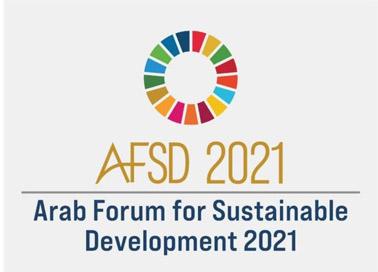- Local News
- Web-2021-03-31 | 03:46 pm

Nayrouz News Agency :
The 7th special session of the Arab Forum for Sustainable Development "SDG Climate Security Nexus in the Arab States” held on Tuesday shined spotlight on the impact of climate change and took note of solutions and future plans.
The conversion of multiple risks and challenges in the region have created a situation where existing vulnerabilities can worsen, and where social and economic inequalities are rising. Along with the outbreak of the COVID pandemic, all these factors slow down the progress towards achieving the Sustainable Development Goals (SDGs), Sujala Pant, Chief Technical Adviser at United Nations Jordan, said opening the forum.
According to the director of the UNDP Regional Hub in Jordan, Khaled Abdel Shafi, the Arab region is "severely affected” by the impact of climate change due to the rise in temperatures.
There are 14 Arab states among the world’s 20 most water stressed countries worldwide, according to a recent UNDP study, Abdel Shafi noted.
"In 2019, reports revealed that 38 per cent of the Arab population live in countries with absolute water scarcity. Another report by the World Food Programme (WFP) stated that more than half of all food insecure people around the world are located in fragile countries affected by crisis such as Yemen and Syria. These are all examples of how climate change can exist in socioeconomic tensions,” Abdel Shafi said.
Climate change and climate security are of high importance in Jordan, as they engage different development sectors, Secretary General of the Ministry of Environment Mohammad Khashashneh said.
The National Climate Change Committee in Jordan was set up to bring together different stakeholders and high level institutions. It is chaired by the minister of environment and includes different ministries and municipalities, Khashashneh noted.
"This committee has different responsibilities in matters related to climate change policies both locally and globally, including the adoption of the climate adaptation plan and the Nationally Determined Contributions (NDCs) policy. The committee oversees the implementation of climate related policies in the Kingdom. It also adopts national strategic recommendations and embraces modern technologies on climate,” Kashashneh said.
One of the main climate security threats in Jordan is the overexploitation of natural resources. Jordan suffers from water scarcity, and climate change has only made the situation worse. The Kingdom also suffers from degradation land and ecosystems, Kashashneh noted.
"There are other phenomena that have a large impact on water and food security such as increased water scarcity, droughts, dust storms and heat waves,” he said.
Kashashneh highlighted that food security is a key priority for Jordan, especially that only 19 per cent of Jordan’s food needs are produced locally while the rest is imported. He added that work on a new food strategy is ongoing.
Khashashneh stressed the importance of including climate change into planning. "We must integrate climate change into development planning using available tools. Warning systems of drought and flash floods must be put in place, too,” he explained.
Heba Al Hariry, Deputy Technical Director at the Arab Water Council, noted that climate security is a concept that is "not yet well understood” in the Arab region.
"There is a great lack of regional cooperation on climate security which is why we need a regional climate security network,” Hariry said.









